Scleroderma describes a family of diseases that usually cause thickening or hardness of the skin.
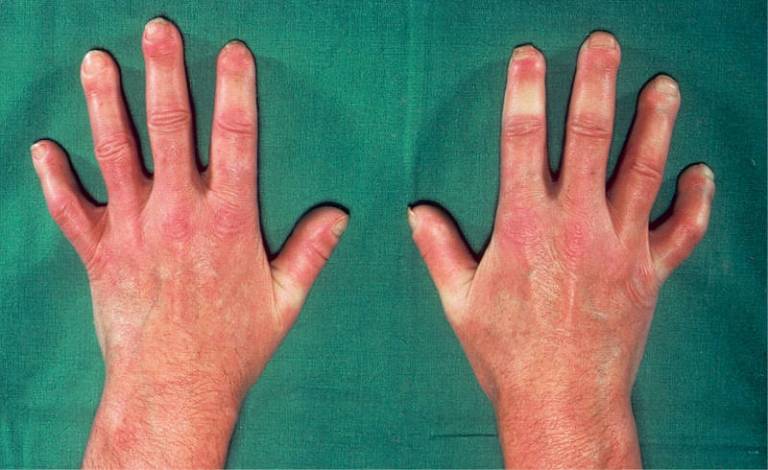
The most severe forms also affect blood vessels and can cause scarring or fibrosis of the internal organs (heart, lung, kidney and others). These forms are terms Systemic Sclerosis (SSc). Systemic sclerosis is an autoimmune diseases that can be treated with immune-based treatments.
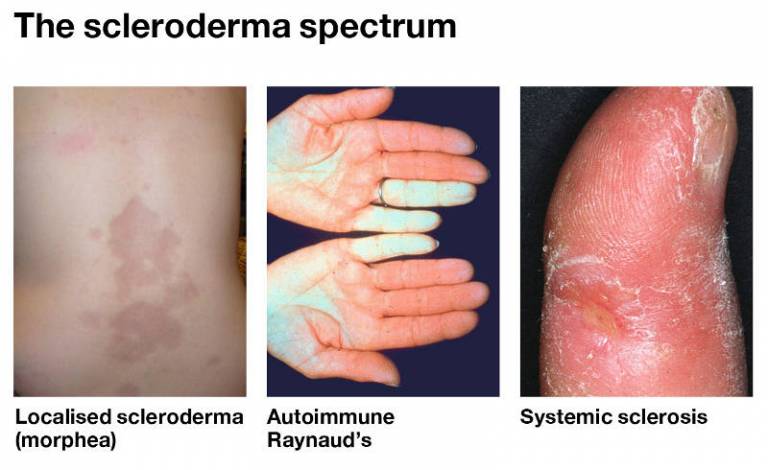
Scleroderma describes a group of conditions that includes: localised scleroderma, also knowna as morphea; autoimmune raynaud's phenomenon; systemic sclerosis that affects skin, blood vessels and has autoimmune features.
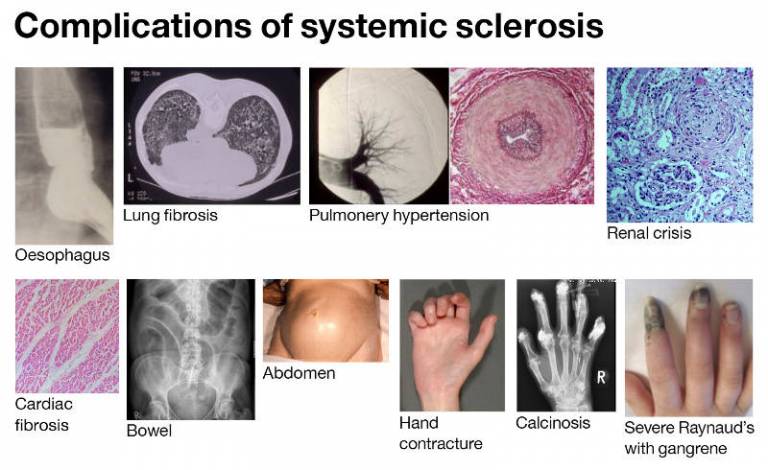
Many people with systemic sclerosis have problems with their gut, such as heartburn, and problems swallowing (dysphagia). Skin becomes puffy and thickens, which can restrict joint movement. Other general symptoms may include: hair loss, weight loss, fatigue, joint pain, stiffness, and red spots (dilated blood vessels) on the face, hands and arms.
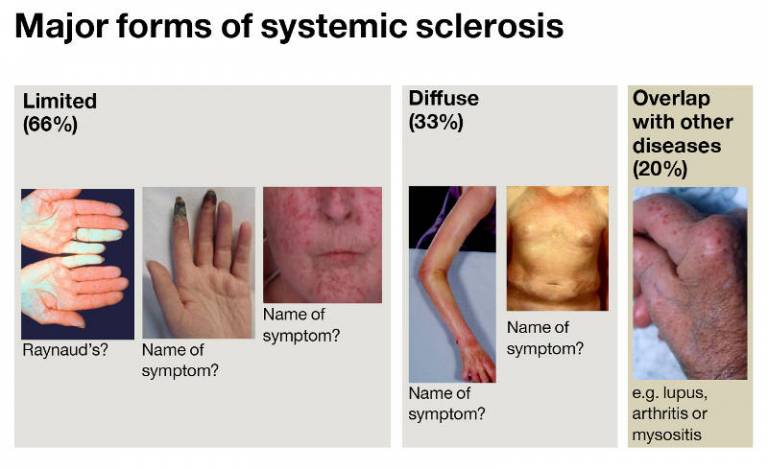
Systemimc sclerosis diseases are grouped within two main categories. Limited include milder forms of the disease. Diffuse forms are more severe, they can affect quality of life through: a) physical pain or discomfort, b) emotional anxiety, c) economic anxiety due to work. Overlap with other diseases: about one fifth of cases co-exist with other rheumatic diseases.
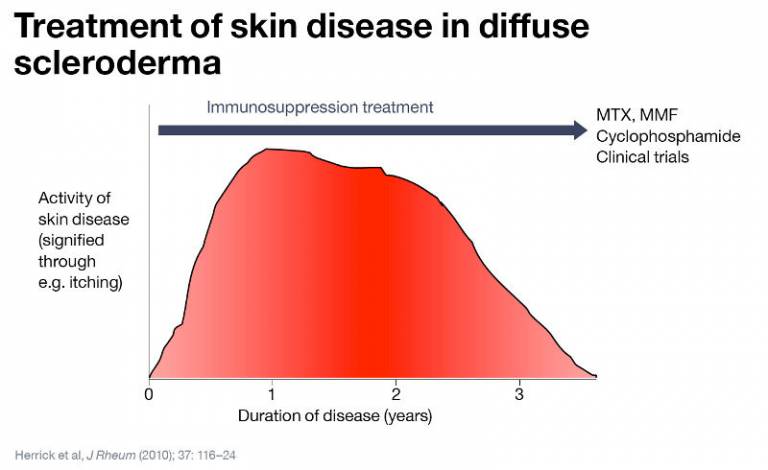
Treatment for diffuse scleroderma generally involves long term drugs called immunosuppressants, which are tailored to each individual's needs.
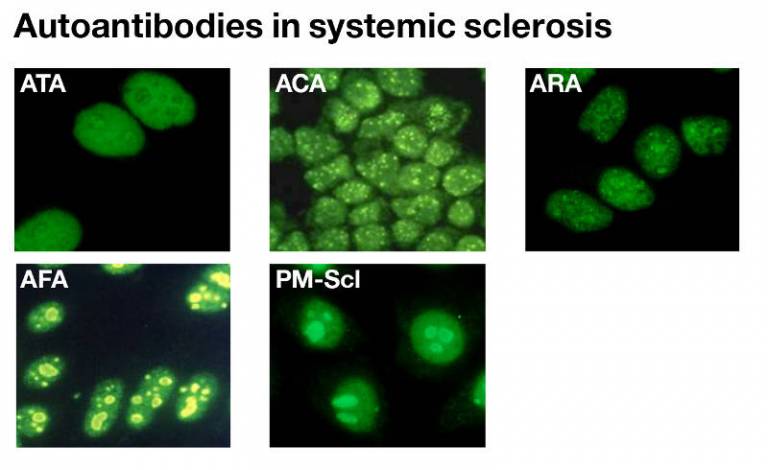
Most cases of systemic sclerodid are identified by a marker autoantibody (ANA). The different patterns of ANA are associated with specific disease patterns, such as lung, heart or kidney complications. Levels of these antibodies are measured by blood tests, which help decide on treatment decisions.
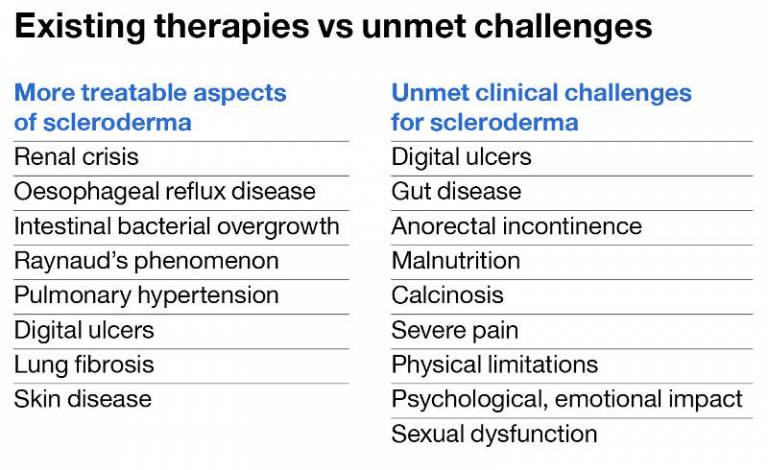
The Royal Free is the largest scleroderma centre in Europe. We have more than 1200 cases of scleroderma under regular review and admit 4-6 new cases each week. We have a dedicated clinical trials unit working on the unmet challenges of scleroderma.
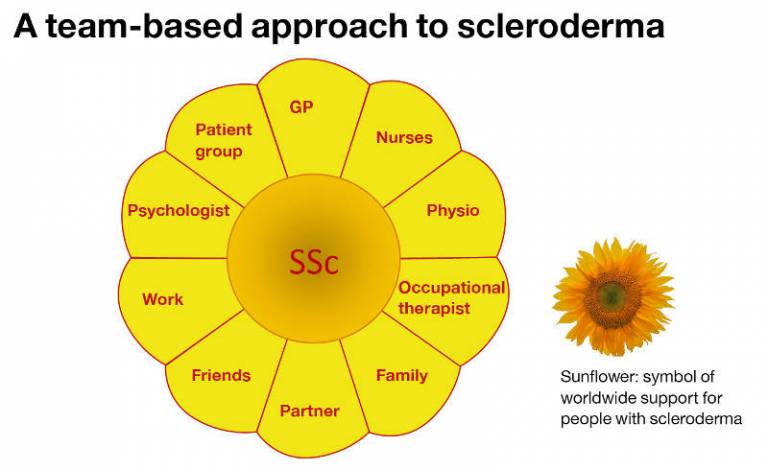
At the Royal Free our emphasis is on shared care with local specialists. We have strong links with cardiology, dermatology, renal medicine, gastroenterology, neurology, respiratory medicine, plastic surgery, orthopaedics, and colorectal surgery. We are also affiliated with the National Centre for Pulmonary Hypertension.
 Close
Close

